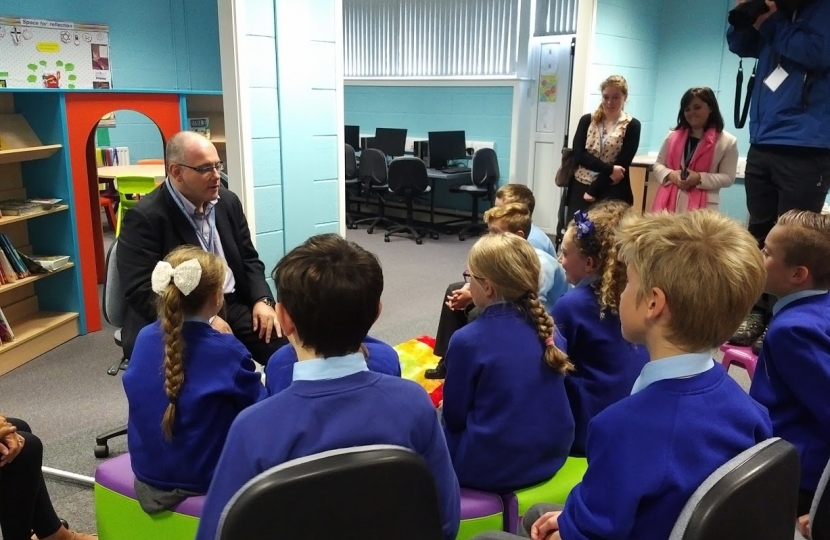
The House of Commons Education Select Committee, Chaired by Harlow MP Robert Halfon, met virtually this morning with a rigorous programme of questioning about school reopenings for the teacher and education trade unions. The evidence session forms part of the Committee's inquiry into the impact of Covid-19 on education and children's services.
Dr Mary Bousted, the Joint-General Secretary of the National Education Union (NEU), Dr Patrick Roach, General Secretary of the NASUWT, Julie McCulloch, Director of Policy at the Association of School and College Leaders (ASCL) and Jon Richards, National Secretary of Education at UNISON faced tough questions from the cross-party group of MPs about the unions' apparent opposition to Government reopening plans, including direction by one union to their teaching and support staff members not to engage with their schools on reopening.
The Chair opened the questioning citing the statistics released this week that 4 million pupils have not been in regular contact with their teachers and 2.3 million children are doing (at most) 1 hour a day of home learning under lockdown. The NEU and the NASUWT have both set 5 tests for the Government before schools can reopen but Mr Halfon was conscious to point out that neither seek to assess the risk of damage to the life chances of millions of children during the school closures.
Given the rising vulnerabilities that children face, including online harms and mental health challenges, he asked the unions: "At what point does the risk to children's educational futures start to outweigh the immediate health risk posed by the virus? Are you weighing up these risks too, to the children who are at home not learning and suffering enormously?"
Julie McCulloch of ASCL responded: "Every establishment is balancing those two things to the best of their ability."
Mr Halfon went on: "Do you believe that schools [that] are reopening and may not necessarily be following the 5 tests set by the NASUWT - are they mismanaging things or should they be open? ...Are schools wrong to open if they don't accept the 5 tests set by the NASUWT?"
Dr Patrick Roach of the NASUWT replied: "The NASUWT has never set 5 tests which schools must satisfy before reopening. What we've said to [the] Government is that there are 5 conditions that they need to demonstrate around the phased reopening of schools."
Mr Halfon then proceeded to go through the tests with the unions: "Okay, let me look at the 5 conditions that are not tests... You say that 'teachers [should be] guaranteed the same protections as other workers'. What 'other workers'? Are you talking about workers in Primark? Context, surely, is important. You can't compare with nurses for example, working in [difficult] conditions in hospitals."
The tests attracted heavy criticism from former teacher, Jonathan Gullis MP, who said:
"I've never been so frustrated in my entire life sitting in this Committee listening to what's been said, as someone who's spent 8 years in the teaching profession... I joined the NASUWT...and yet, I'm sorry to say, these 5 conditions are effectively 5 tests. As for the NEU, running a political campaign which came through all MPs' inboxes to basically make sure schools did not open, I just think is utterly disgraceful. The fact that [Labour MPs] David Blunkett and Alan Johnson...have said that Unions have got it wrong.
Dr Patrick Roach of the NASUWT said: "Yeah, well, I mean, I respect the right of Members of the Committee to have their views."
Jonathan Gullis MP went on to say: "I have an email from the NEU to its members on 11 May saying that... staff were not to engage with any planning based on the wider opening of schools and if your Head asks if you will be available for wider working after 1 June, we urge you to reply you are awaiting further advice from your union.
"What support has not been given to kids that could have been given? I am absolutely outraged at the sheer damage that Unions have done to the teaching profession and I think there [are] a lot of questions for unions to answer."
Dr Mary Bousted of the NEU agreed that they had directed members not to engage with their schools "in the absence of any Government guidance on how this [engagement] was to be done".
